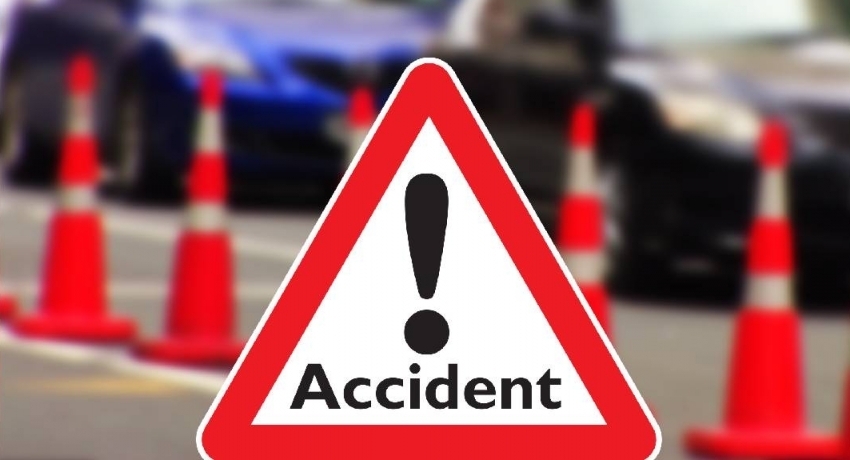Is this society teetering on the brink of normalizing road accidents in our beloved homeland Jammu and Kashmir? Barely a day passes without some life devoured by a road mishap. Just last week, in Kulgam area, a big vehicle was found skidded off the road and overturned, crushing two precious lives to a terrific death. And a young boy’s two-wheeler got hit formidably by a speeding four-wheeler in Khachdora area of district Shopian on Monday evening; the boy breathed his last on spot. Very recently, Tengpora area road mishap saw two 17-year-olds killed. These harrowing disasters paint a grim picture of our society underscoring the pressing need for a moral imperative: both society and UT must work in tandem to crack the whip and — at least rein in the tragedies on the rise.
It is not as if these chilling accidents are beyond prevention. Let us not put it behind us that teenagers drive vehicles –two wheelers, auto rickshaws and cars — with or without a license, violate the law and put lives in the line of death— including their own. We offer no stiff resistance to the scenario. The law is crystal clear — under the Motor Vehicles Act, any person below 18 years of age cannot drive. By overlooking this all-important law, we end up in dire straits and afterwards unleash a venomous blame game only to compound the critical situation. Instead, should we not take the ownership of our decisions and epic blunders that we commit brazenly on roads?
If driving is not to be in line with the traffic laws, then what for are these provisions? Such laws are not an impediment; they are, in effect, a deterrent to road accidents and the resulting bloodbath. Unless the codal norms are respected and abided by, the alarming speed of accidental deaths looks set to scale new heights. Who will stem the tide? We all need to step in: police have other vital tasks as well to carry out.
As per media reports, Jammu and Kashmir (in 2023) saw a sharp rise in road accidents 6,298 incidents reported. These accidents killed 893 people, leaving 8,489 others wounded. Year 2024 has recorded 703 deaths and 6,820 injuries thus far. A staggering number of 4,899 fatalities and 40,065 injuries were reported between 2019 and 30 October 2024.
It is widely believed that speeding, overloading and unnecessary overtaking contribute to the rampant road tragedies. Shockingly, a significant population of drivers does not wear helmets while operating the two wheelers. Police cannot keep an eye everywhere. The society’s reformative mindset is a must to deter road accidents. Anything less is disservice.
True, culture and the prevailing social environment significantly determine the driving notions of teen agers. Yet parents, in most cases, are directly responsible for the accidents, underage -linked accidents in particular. Not a long ago, four underage boys of my area met with an accident while traveling in the auto rickshaw. This accident could have been avoided had the driving boy’s parents earnestly denied the ride.
Granted that teenagers/ underage drivers are hard to convince against driving — not to speak of just rash driving— but it is poor form for adults or parents if they do not proactively disapprove and discourage underage driving and by extension speeding. Too difficult but not impossible. Families must be held accountable.
The glorification of accident-prone driving is mismatched and uncalled for from adults and parents: the catch is it encourages the youngster drivers to jeopardize everyone’s life, while driving. Look around, your eyes will cite a teenage biker or car driver alongside the parents or any adult. May be the speed is not an issue here. But this driving comes as a shot in the arms of the teenagers, inducing them to indulge in extreme fast driving alone or together in a bid to upstage others.
As parents or adults, we can withhold the vehicle keys come what may. Many among us are successfully doing it. Therefore, with the keys removed by parents, teenagers can stay away from driving. Parental neglect, on the other hand, should be a big reason to worry about.
Outside the responsible parenting, effective schooling and education are robust mechanisms toward curbing rash driving. That calls for a serious intervention by policy-makers, media and civil society to frame curriculum which imparts fruitful awareness on traffic norms and regulations.
Notably, the inclusion of content / texts in the syllabus can potentially promote the lawful and productive use of roads. To quell the floating of codal norms aimed at preventing the reckless driving, we can align our own road behavior with the rulebook. A big stride can be that. The police of this union territory has been doing a remarkable job for the past few years to curb social crimes; unlawful driving including. More needs to be done.
By prohibiting the irrational driving, 95 % road accidents are bound to become the thing of the past sooner or later. That the Director School Education, Kashmir has very recently banned underage driving to the institutions, is laudable. Religious leaders also can play a pivotal role in combating road mishaps: The pulpit ideally is in a strong position to dissuade teenagers from driving. And also of the risk-mongering driving.
Banning the purchase of vehicle fuel– although a tough ask– to the underaged can be a viable move in the grand scheme of things. Effective education and social pressure are paramount to dissuade risk-ridden driving. Above all, the parental role has no substitute in combating defiant driving; it is imperative that the society at large rises to the occasion and helps thwart any act of unsafe driving. Social support is a beacon of hope.
(Author is RK columnist and teacher by profession. Feedback: [email protected])








